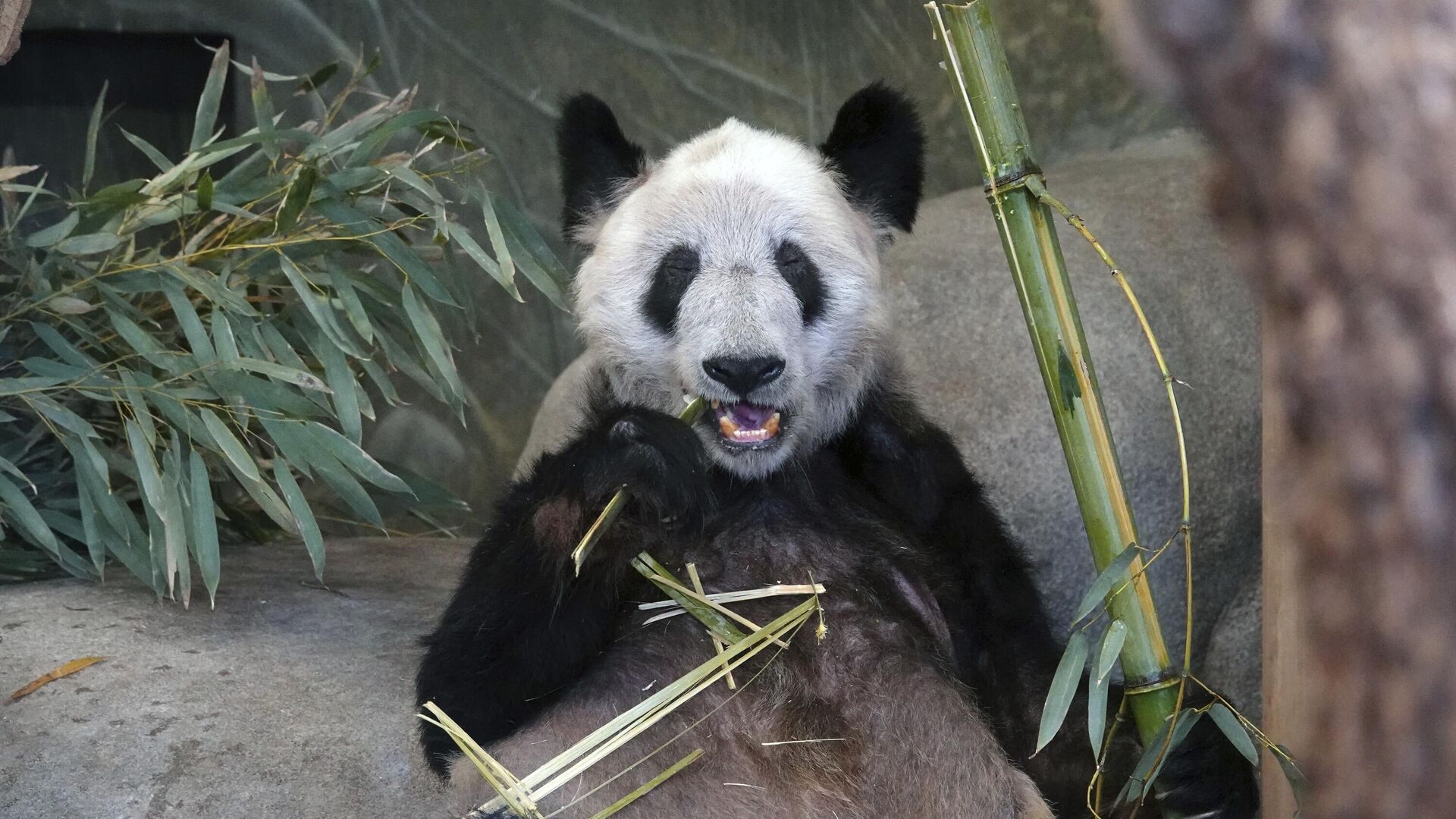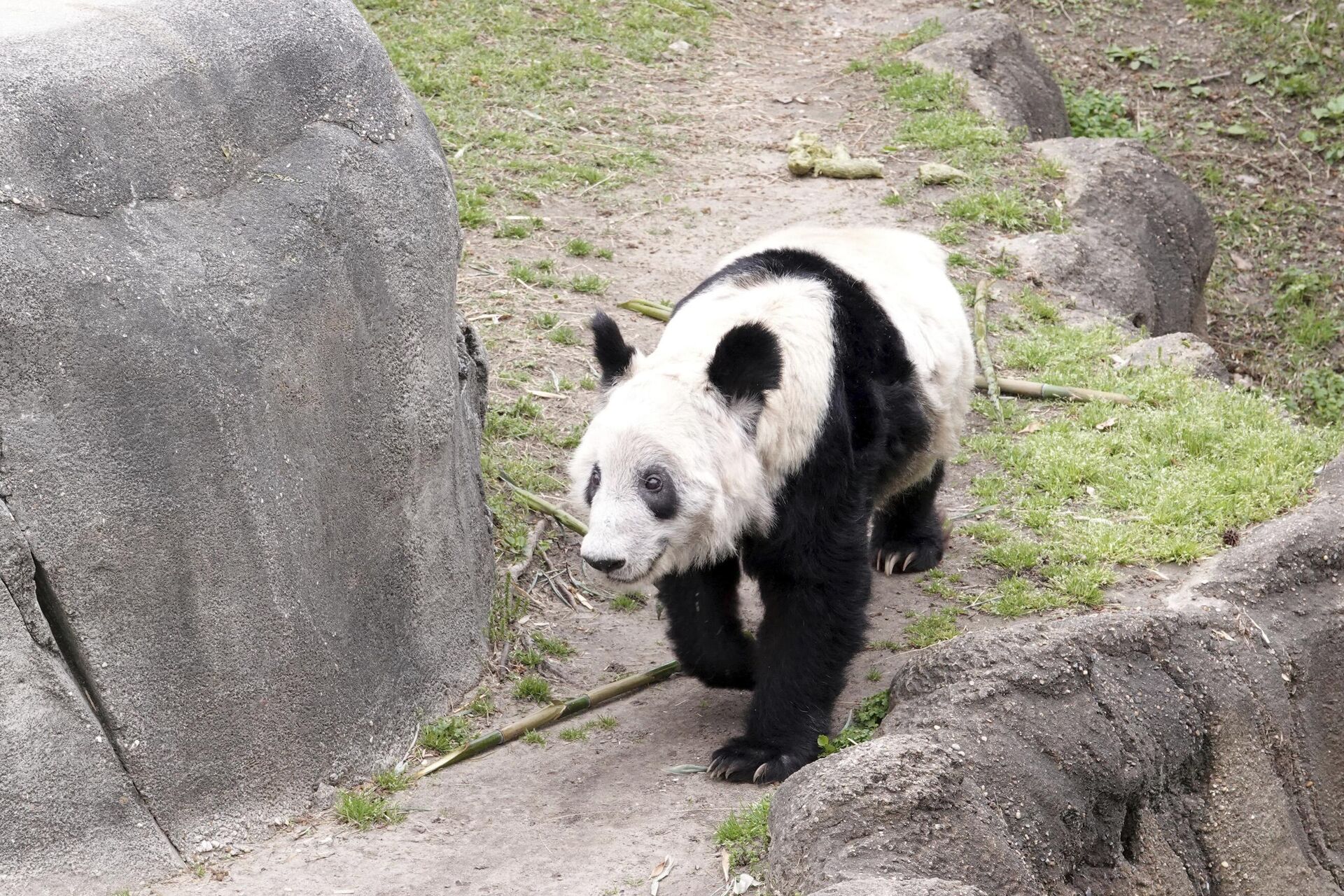https://sputniknews.in/20230427/bye-bonhomie-panda-ambassador-of-friendship-returns-to-china-from-us-zoo-1718568.html
Bye Bonhomie? Panda Ambassador of Friendship Returns to China From US Zoo
Bye Bonhomie? Panda Ambassador of Friendship Returns to China From US Zoo
Sputnik India
In late February, videos and photos of the panda taken by visitors at the Memphis Zoo went viral on Chinese social media, showing the animal looking thin and... 27.04.2023, Sputnik India
2023-04-27T17:41+0530
2023-04-27T17:41+0530
2023-04-27T17:41+0530
animal rights
china
chinese pandas
us
wildlife
https://cdn1.img.sputniknews.in/img/07e7/04/1b/1718259_0:156:3000:1844_1920x0_80_0_0_2d96741955b14106b62b9d0bda519ca5.jpg
Ya Ya, a giant female giant panda who lived in the United States for 20 years and served as a messenger of friendship, has been sent back to China via airplane, Chinese state media reported on Thursday.The specially chartered cargo plane carrying Ya Ya landed at Shanghai's Pudong Airport on April 27 after a 16-hour flight from the United States. Chinese netizens accused the American zoo of mistreating the animal, fearing that Ya Ya was not served proper food and was living in poor conditions. They demanded that the poor animal be returned to China as soon as possible.Ya Ya and a male giant panda named Le Le were brought from China to Memphis Zoo in April 2003, as part of a joint Sino-American research project. The pair was supposed to stay in the United States for 10 years under the initial contract, but it was extended in 2013, and their return was expected in April this year. In early February, Le Le died at the age of 25. At the time, Chinese animal rights advocates already suspected the American zoo of mistreating the pandas, and a group of experts from China was sent to the Memphis Zoo to check up on Ya Ya's health. They found that the panda's hair loss was caused by a skin disease, but overall, Ya Ya had a good appetite, normal feces, and stable weight. During discussions on the hair loss problem, the Chinese specialists presented extensive guidelines on panda treatment to their American colleagues. At the moment, Ya Ya's weight and health are reportedly "relatively stable." China actively uses so-called "panda diplomacy," periodically sending these bamboo bears to different countries. According to existing rules, panda cubs born from animals that were gifted or temporarily "leased" from another country must be returned to China.
china
us
Sputnik India
feedback.hindi@sputniknews.com
+74956456601
MIA „Rossiya Segodnya“
2023
Sputnik India
feedback.hindi@sputniknews.com
+74956456601
MIA „Rossiya Segodnya“
News
en_IN
Sputnik India
feedback.hindi@sputniknews.com
+74956456601
MIA „Rossiya Segodnya“
Sputnik India
feedback.hindi@sputniknews.com
+74956456601
MIA „Rossiya Segodnya“
animal rights, china, chinese pandas, us, wildlife
animal rights, china, chinese pandas, us, wildlife
Bye Bonhomie? Panda Ambassador of Friendship Returns to China From US Zoo
In late February, videos and photos of the panda taken by visitors at the Memphis Zoo went viral on Chinese social media, showing the animal looking thin and ragged.
Ya Ya, a giant female giant panda who lived in the United States for 20 years and served as a messenger of friendship, has been sent back to China via airplane, Chinese state media reported on Thursday.
The specially chartered cargo plane carrying Ya Ya landed at Shanghai's Pudong Airport on April 27 after a 16-hour flight from the United States.
Chinese netizens accused the American zoo of mistreating the animal, fearing that Ya Ya was not served proper food and was living in poor conditions. They demanded that the poor animal be returned to China as soon as possible.
Ya Ya and a male giant panda named Le Le were brought from China to Memphis Zoo in April 2003, as part of a joint Sino-American research project. The pair was supposed to stay in the United States for 10 years under the initial contract, but it was extended in 2013, and their return was expected in April this year.
In early February, Le Le died at the age of 25.
At the time, Chinese animal rights advocates already suspected the American zoo of mistreating the pandas, and a group of experts from China was sent to the Memphis Zoo to check up on Ya Ya's health.
They found that the panda's hair loss was caused by a skin disease, but overall, Ya Ya had a good appetite, normal feces, and stable weight. During discussions on the hair loss problem, the Chinese specialists presented extensive guidelines on panda treatment to their American colleagues.
At the moment, Ya Ya's weight and health are reportedly "relatively stable."
China actively uses so-called "panda diplomacy," periodically sending these bamboo bears to different countries. According to existing rules, panda cubs born from animals that were gifted or temporarily "leased" from another country must be returned to China.


